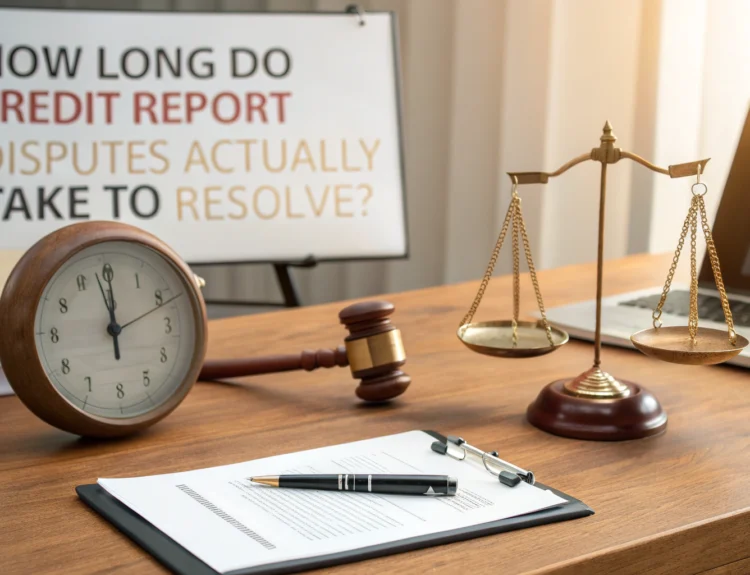Fighting for custody of your child is no easy battle. You’ll do anything to win their care, but do you really know the moves that can tip the scales in your favor? Many parents go into custody hearings unprepared and blind to subtle strategies that can sway the decision.
This article reveals the high-impact actions you must take if you want to strengthen your claim and increase the chances a judge grants you custody. Read on to discover the pivotal steps that could mean the difference between losing your child or bringing them home where they belong.
Contents
Child Custody Basics
After parents separate or divorce, courts must determine legal custody arrangements regarding where the child will live and who will make important decisions about their upbringing. These determinations aim to serve the best interests of the child.
Types of Child Custody
There are several types of custody arrangements courts may order. Physical custody refers to a child’s living situation, such as which parent’s home they reside in primarily. Legal custody refers to having the power to make decisions about things like activities, healthcare, and education.
Joint custody allows both parents to share parental responsibilities through equal time with the child or a set schedule. This arrangement maintains relationships with both parents through collaboration. However, it requires cooperation between parents, which courts carefully consider.
Sole custody grants full custody rights to one parent, usually due to concerns over the other parent’s fitness. This parent makes all the decisions, and the child resides primarily with them. The other non-custodial parent may have limited involvement through visitation rights.
In rare cases, courts may consider split custody, where different children reside primarily with different parents. However, courts generally prefer to keep siblings together for stability.
Determining Factors
When establishing custody, courts evaluate factors such as each parent’s ability to care for the child’s physical and emotional needs through stable housing and mental health. Courts also assess evidence of neglect, abuse, or substance abuse issues affecting a parent’s fitness.
The parent’s capacity for cooperation and joint decision-making heavily influences decisions regarding joint versus sole custody. Ultimately, determinations aim to serve the long-term well-being and development of the child through a stable, nurturing custody arrangement.
Calculating Child Support
The non-custodial parent’s income and state of residence primarily dictate child support amounts according to statewide formulas. These models calculate a baseline payment due, though courts may adjust the final order.
For example, New York uses the Income Shares Model to evaluate parental incomes and sharing responsibilities. Percentage of Income Models, like in Wisconsin, examine support as a set portion of wages. Other states incorporate unique formulas.
While formulas vary, enforcement policies remain consistent. Most receive payments through automatic wage withholding. Past due balances, or arrearages, incur penalties. The federal government and states work together to intercept taxes or garnish wages from non-compliant payers. Revoking licenses also encourages the fulfillment of lawful obligations.
Strategies for Winning a Child Custody Battle
Keep the Child’s Best Interest at Heart
During divorce and custody proceedings, it is easy for parents to lose focus on what should be the top priority – the well-being of their child. Parents may become consumed with trying to “win” against their ex-partner, which can lead to contentious legal battles.
However, very heated circumstances put an emotional strain on everyone involved, particularly children. Even infants can sense increased stress in the household.
Older children commonly worry that they may be to blame or that their parent’s love for them will fade as a result of the conflict and uncertainty between their parents. This period of uncertainty activates stress responses in children. Therefore, ensuring strong, quality relationships between each parent and child, as well as minimizing the child’s anxiety, should be the main priority during this challenging time.
When determining custody and visitation, courts will consider a variety of factors related to serving the best interests of the child.
Important considerations may include each parent’s ability to adequately care for the child and maintaining sibling and family bonds important to the child’s happiness and development. Additionally, the child’s preferences, when age-appropriate, and providing stability through continued strong relationships with both parents are crucial factors to consider.
The child’s overall well-being, educational needs, and history of exposure to violence or trauma are also weighing factors. Some jurisdictions use a comprehensive set of criteria. For instance, Michigan’s 12 factors examine the child’s emotional bonds with each parent along with their moral, mental, and physical wellness.
Seek an Experienced Family Law Attorney for Custody Matters
Going through a custody battle is an extremely serious matter that requires specialized legal guidance. A family law attorney understands the complexities of child custody laws and has experience handling similar cases. They can serve as your protector and negotiator to work towards the best possible outcome. Consulting an attorney from the start prevents costly mistakes from being made.
Take Tennessee, for example. In Murfreesboro, Rutherford County, Tennessee, parents filing for divorce or separation are required to attend a mandatory parenting class and draft a legally binding child custody plan called a “Parenting Plan.” According to Hudson, Reed & Christiansen, PLLC, this plan outlines important parenting details such as physical living arrangements, medical consent, school decisions, holidays/birthdays, and more. If an agreement is not possible, the judge will determine custody by taking the child’s best interests into consideration.
Some key considerations for the court include the child’s established relationships and routines, parental abilities to provide care and stability, parental preference for children aged 12+, and the safety of each home environment. The goal is to facilitate ongoing connections between both loving parents and their children.
Entering this process with unrealistic biases will only undermine your case. In such scenarios, local lawyers in Murfreesboro, TN, can ensure you understand the realistic legal standards involved rather than unsupported assumptions. They will advocate constructively so you and your co-parent can reach an arrangement serving everyone’s well-being, especially your children’s. If safety is a concern, an experienced family law advocate is necessary to raise such issues with the court.
Documentation Is Very Crucial
Keeping detailed records is important during a contentious divorce or custody case. Documenting events, conversations, and incidents that occur can help create an accurate timeline of what transpired. Having a reliable record to refer back to can strengthen your case, especially if recollections differ or someone tries to distort the facts. Maintaining clear and consistent documentation provides a narrative for the court.
It’s best to document as much as feasible. This not only helps defend against exaggerations or outright lies but can also support obtaining favorable divorce terms. Video, audio, and text evidence can all serve as useful documentation. However, be aware of consent requirements for audio recordings in some jurisdictions.
According to legal experts, it’s advisable to keep a written log of all pertinent information for your case. Video or audio recordings may assist, but legal restrictions on recordings without consent need consideration. It’s important to avoid tipping off the other party about documentation strategies.
A therapist familiar with narcissistic personality disorder can aid in anticipating behaviors and maintaining safety. Couples counseling may exacerbate situations involving narcissism, as not all therapists have expertise in identifying covert abuse. Finding a provider experienced in these issues helps ensure appropriate support.
All interactions, communications, and related incidents stemming from the divorce should be meticulously recorded. This evidence may prove important in legal proceedings, like demonstrating patterns of conduct or credibility assessments. Thorough documentation strengthens a case.
Be Mindful About Your Social Media
It can be tempting during a divorce to vent about your ex on social media, but this isn’t advisable. Publicly bad-mouthing the other parent could be seen as parental alienation, which could negatively impact custody decisions.
Social media usage leaves a digital footprint that may be examined in court. What you post could be analyzed to determine character, views, activities, and associates – all of which factor into custody rulings. Things that portray poor judgment or an unfavorable light risk harming your case. While undergoing custody proceedings, exercising caution with social media is prudent.
Also, keep in mind that the same standards apply to your ex’s social media. Should any posts or messages potentially aid your case, a lawyer must properly document and ensure admissibility following established procedures. Social media evidence needs to be handled correctly to carry weight in court.
Fighting for custody of your child is an uphill battle that requires strategic moves. Document everything meticulously, consult an experienced family law attorney, and stay focused on your child’s best interests above all else.
Winning custody demands making smart choices, avoiding public disputes, and strengthening your case with compelling evidence. The stakes could not be higher – with proper guidance and preparation, you can fight to bring your child home.




